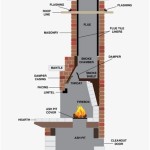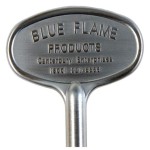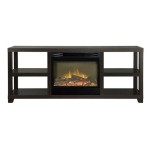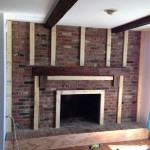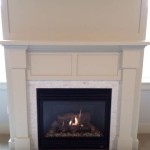Faux Stone for Fireplaces: An Essential Guide
Fireplaces are a focal point of many homes, and the surrounding material can significantly impact the overall aesthetic. Faux stone has emerged as a popular choice for fireplace surrounds due to its versatility, durability, and cost-effectiveness compared to natural stone.
Types of Faux Stone
Faux stone is available in various materials, including:
- Cast Stone: Made from a mixture of水泥, aggregates, and pigments, cast stone replicates the look and texture of natural stone with great accuracy.
- Cultured Stone: Similar to cast stone, but made with lightweight materials like fiberglass or polyurethane, making it easier to handle and install.
- Thin Veneer: Ultrathin slices of natural stone or concrete attached to a mesh backing, providing a realistic stone appearance with less weight and thickness.
Benefits of Faux Stone
Faux stone offers numerous advantages over natural stone for fireplaces:
- Cost-Effective: Faux stone is typically more affordable than natural stone, making it a budget-friendly option.
- Lightweight and Easy to Install: Cultured stone and thin veneer are lightweight and can be installed on various surfaces, reducing labor costs.
- Low Maintenance: Faux stone is resistant to heat, moisture, and stains, requiring minimal maintenance compared to natural stone.
- Versatility: Faux stone is available in a wide range of colors, textures, and shapes, providing endless design possibilities.
Choosing the Right Faux Stone
When selecting faux stone for your fireplace, consider the following factors:
- Style: Choose a faux stone that complements the architectural style of your home and the surrounding decor.
- Durability: Ensure that the faux stone is heat-resistant and suitable for the type of fireplace you have.
- Texture: Opt for a texture that adds depth and character to your fireplace.
- Color: Select a color that harmonizes with the overall color scheme of your room.
Installation
Professional installation is recommended for best results. The process typically involves preparing the fireplace surface, applying adhesive, and securing the faux stone pieces. Adhesive choices vary depending on the type of faux stone and the surface it is being attached to.
Conclusion
Faux stone for fireplaces offers numerous benefits over natural stone, including affordability, ease of installation, low maintenance, and versatility. By choosing the right faux stone and ensuring proper installation, you can enhance the beauty and functionality of your fireplace for years to come.

Jerre S Faux Stone Fireplace Surround Genstone

Thin Stone Veneers Make A Fireplace Update Easy

11 Stone Veneer Fireplace Surround Design Trends Where To Buy

Stone Fireplace Design And Remodel

Faux Stone Electric Fireplace Rustic Ginny S

Stone Fireplace Makeover Part 2 Faux Whitewash Organized Ish

Faux Stone For Fireplaces

Stone Veneer Fireplace Ideas That Will Warm Up Your Home Ply Gem

Stacked Stone Simply White Quality

Stone Fireplace Design And Remodel


